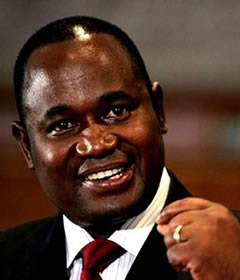By Alex Bell
The Reserve Bank of Zimbabwe (RBZ) is under pressure to pay back millions of dollars in foreign currency it illegally seized at the height of the country’s economic collapse, after a landmark ruling by the High Court.

The High Court last week ordered the central bank to return over US$1 million to the Trojan Nickel Mine firm, in a ruling that sets a new precedent in cases against the RBZ’s theft of foreign currency.
The Bank, under the leadership of Governor Gideon Gono, seized more than a million US dollars from Trojan’s bank account in 2007, after it ‘centralised’ all foreign currency accounts. This was part of efforts to stem the imminent collapse of the economy, which had suffered from years of economic misuse and bad policies by the then ZANU PF led government.
The ‘centralised’ order saw authorised dealers of forex being forced to hand over their clients’ money to the RBZ, which resulted in more than a billion dollars worth of foreign cash being seized. This included just over a million dollars in a BancABC account owned by the Trojan Nickel firm.
Economist John Robertson told SW Radio Africa that the RBZ has been trying to distance itself from the claims, arguing that it had no legal relationship with either companies or individuals who unwittingly funded ZANU PF during that time.
“The RBZ has been trying to deny any of the companies, including charities and NGOs, access to money they can’t deliver. The ruling doesn’t necessarily mean that Trojan will get the money because it doesn’t actually exist,” Robertson said.
He continued: “The amounts (seized by the RBZ) total more than a billion dollars, and a great many of the other companies and individuals are going to lodge a claim with the precedent of this case being used.”
“It will lead to a lot more anxiety and frustration rather than settlements. There will be a great many people still waiting for settlement in six months time,” Robertson said. SW Radio Africa





